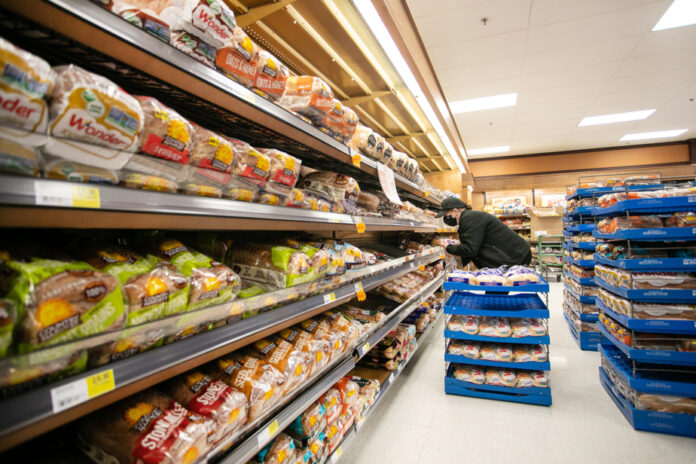Due to the system put in place to raise the price of wholesale sliced bread, Canadian households would have paid some $4.3 billion extra to buy this staple. An amount higher than the record fine of 50 million imposed on Canada Bread for its participation in the case.
“It was estimated that [the scheme] which lasted 14 years between 2001 and 2015 – and which would involve several other companies – had cost between $350 and $400 for Canadian families on average”, estimates Sylvain Charlebois, director of the Laboratory of sciences Agrifood Analytics from Dalhousie University.
While Statistics Canada counted 12.4 million households in 2008, we can assume that the sums paid “in excess”, according to Sylvain Charlebois, would vary between 4.3 billion and 4.9 billion.
Thus, the director of the laboratory believes that the companies involved have made enormous gains.
However, Canada’s Competition Bureau, which is continuing to investigate “allegations of price-fixing against other companies, including Metro, Sobeys, Walmart, Giant Tiger and Maple Leaf Foods,” declined to come up with numbers. .
“Under the law, it is the agreement itself that constitutes the infringement, so our investigation is not aimed at determining how much a business earned [or how much was overcharged to customers],” comments Sarah Brown, spokeswoman for the Competition Bureau. She says fines act as a deterrent to illegal activity.
Recall that, following price-fixing agreements in October 2007, Canada Bread increased its prices for certain fresh bread products by 12 cents or 14 cents per unit, depending on the product. The Competition Bureau also points out that following price-fixing agreements in March 2011, Canada Bread increased the prices of certain fresh bread products by 14 cents per unit.
Canada Bread’s annual sales (Bon Matin, POM, Villaggio, Dempster’s, etc.) for its “fresh baked goods” category for the year 2007 were 946 million, and 1.1 billion for 2011. bakeries that were price-fixed did not represent all of the sales in that category, but a majority of them.
Canada Bread was a Toronto Stock Exchange-listed company 90% of whose shares were controlled by Maple Leaf Foods during the years the illegal arrangements were observed. Mexican company Grupo Bimbo bought Canada Bread in 2014 in a deal valued at $1.8 billion.
From 2007 to 2011, Maple Leaf Foods received a total of $37 million in dividends from Canada Bread.
Grupo Bimbo maintains that it was not informed of the prior conduct, that it was not discovered during the purchase process, and that it only became aware of the bread price manipulation scheme in 2017.
According to the facts reported, in 2007 and 2010-2011, one or more senior executives of the Weston baker entered into several price arrangements directly with Richard Lan. He is now retired and it was not possible to speak to him on Thursday.
At Maple Leaf Foods, management says it has “no idea” why Canada Bread or its owner would enter into a guilty plea. “We are not aware of any wrongdoing by Canada Bread or its senior management during our time as a shareholder,” a spokesperson said by email.
“We have always acted ethically and legally. We have no knowledge of, or have never engaged in, inappropriate or anti-competitive activities and will vigorously defend ourselves against any allegations to the contrary. »
Grupo Bimbo says it is considering all legal options against those responsible for the conduct that led to the Competition Bureau’s investigation.
According to Sylvain Charlebois, the Competition Bureau’s investigation into other companies could uncover “other disturbing revelations”.
However, he deplores the slowness of the process. “We haven’t heard from the investigation for almost six years. It’s still long though. »















